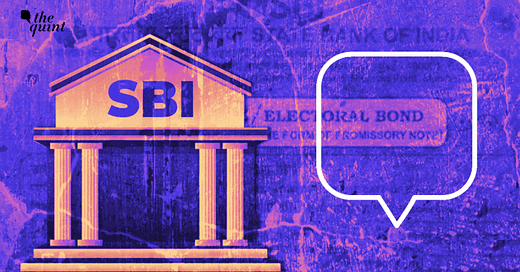Explained: Why SC Refused To Give SBI More Time To Provide Electoral Bonds Data
Experts explain what data has to be collected and collated, and possible reasons for SBI's demand for an extension.
By: ESHWAR
We are bringing you the best of The Quint's journalism straight to your inbox! Producing premium stories like these takes time and resources. Your financial support will enable us to do more – BECOME A MEMBER today! CLICK HERE.
The Supreme Court on Monday, 11 March, declined to extend the deadline given to the State Bank of India (SBI) to provide data regarding electoral bonds to the Election Commission of India (EC).
In its verdict delivered last month declaring the electoral bonds scheme as 'unconstitutional', the apex court had asked that the SBI provide details of the donors, political parties, and denominations of the bonds purchased between April 2019-February 2024 to the EC by 6 March, following which the EC was to make the data public by 13 March.
The SBI on 4 March had filed an application to request an extension till 30 June 2024 to provide the said data to the EC. With the verdict already being seen as a setback for the central government, activists, political observers, and Opposition parties immediately pointed towards the timeline stated by the SBI, highlighting the fact that the data will not be revealed till the general elections conclude.
What did the SBI argue while seeking an extension? Why did the SC refuse to grant the bank time till 30 June? Did the SBI really need four months to provide the data in the first place?
Also Read:
*Already a member of The Quint? What a star! Your support helps us do what we do better.
Want us to cover a story? Write to us at editor@thequint.com.
YOU play a big part in shaping our journalism and we want to hear your suggestions, new ideas, and more. Help us do what we do better, by answering a few Qs.




